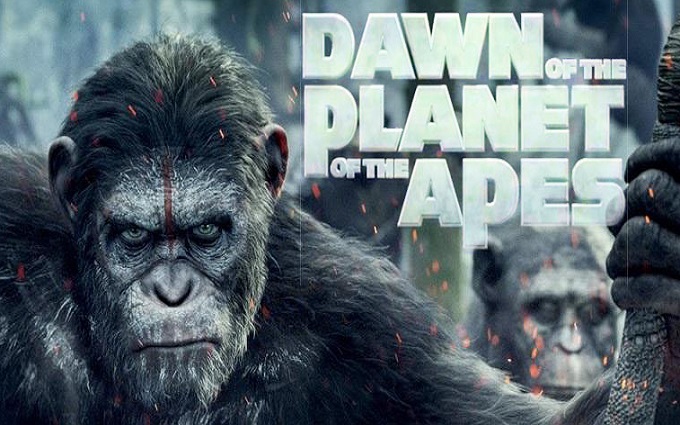Dawn of the Planet of the Apes Review

The Plot
Eight years after the events of Rise, ape leader Caesar has built a well maintained community in the redwoods just outside the city of Los Angeles. But when two young apes encounter the first human they’ve seen in two years, events are set in motion that will change both ape and human lives forever.
The Good
When Rise of the Planet of the Apes was released in 2011, it came with plenty of warning signs and low expectations. Thanks to Tim Burton’s failed attempt at a remake ten years earlier. After the success of the film, and the news that both Andy Serkis and visual effects company Weta – undoubtedly the two things that truly made the film a success – were back on board, it’s safe to say that the worries for Dawn were much less so. And it seems that even the slight worries fans and critics had were definitely unnecessary.
With Serkis being given his rightful place at the top of the credits this time around, he proves that he is quite simply, a god among actors. His ability to completely embrace the character of Caesar is nothing short of perfection. As is Weta’s ability to bring such lifelike CGI to the screen that it will make you completely forget that these are actually humans and not apes. Weta have really outdone themselves this time around, having much more of a challenge on their hands with director Matt Reeves’ decision to film on location as much as possible. This of course brings all sorts of problems to the visual effects company, one in particular being the weather. But Weta seem to be able to battle these problems effortlessly.
Without giving the storyline away, Dawn is a 130 minute thrill ride of domino effect after domino effect which lead to an inevitable finale which is both satisfying and painful to watch. As ape and man begin to work together, all seems to be going well. Enter the stunning Toby Kebbel as Koba. Kebbel gives Serkis a run for his money as the troubled ape who fans of the previous installment will no doubt remember. Having only experienced the bad side of humans, Koba has some sympathy surrounding his character, however his actions soon make cross lines that challenge those sympathies. He also brings about a scene which is so shocking that it surpasses the shock of Caesar’s infamous ‘NO!’ moment in Rise.
Although the main highlight of Dawn is surely the titular apes, Gary Oldman and Jason Clarke bring some equally interesting human characters into the mix. Clarke plays Malcom, a family man trying to keep what’s left of his family together in this post apocalyptic world as he tries to find an alternative fuel source for the small band of surviving humans. He is essentially the human version of Caesar, wanting to keep the peace between human and apes. Oldman provides the other side of the spectrum of human nature, serving as an antagonistic human counterpart to Koba in his ominous plans for a future.
All this plays along to a beautiful score by Lost composer Michael Giacchino which matches the perfection seen on screen. If you haven’t yet, do check out the score for yourself which also boasts some of the best ape puns you’ll ever see in it’s track list.
The Bad
The only real criticism that Dawn deserves is, the comparison between the actors and actresses. Judy Greer plays Caesar’s wife, Cornelia in the film and has next to nothing to do throughout the films storyline. As too does Jason Clarke’s on screen wife, Keri Russell. Other than these two, there isn’t really much female representation in Dawn which is a big shame.
The Ugly Truth
Dawn of the Planet of the Apes is bigger than Rise and surprisingly better. Andy Serkis is again the franchises biggest asset along with the talented animators at Weta, with Toby Kebbel easily catching up to very nearly steal the show. Whilst the lack of female characters is somewhat worrying, the massively expanded storyline certainly makes up for it, along with Michael Giacchino’s moving score.